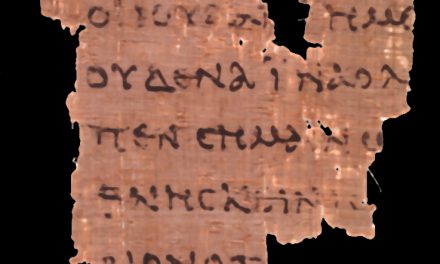If God blessed the seventh day, did He curse the other six days?
Those sentences which are colored in orange are from Maharishi Dayananda Saraswati book Satyarth Prakash (The Light of Truth) and those which are colored in black are Jerry Thomas’s response.
"Remember the Sabbath day, to keep it holy. Six days shalt thou labor…but the seventh day is the Sabbath of the Lord thy God…the Lord blessed the Sabbath day." 20:9 -11.)
C. Is Sunday alone the holy day? Are the other six days (of the week) unholy? Had God worked so hard for six days that he got tired and went to sleep on the seventh? If he blessed Sunday, what did He do unto the other six days? He must have cursed them. Leave alone God, even an enlightened man would not do such a thing. What good did He see in the Sabbath day and what wrong had the other six days done that He blessed and hallowed the one and without any cause pronounced the others unholy?
Answer: Questions after questions, Maharishi’s shoddy scholarship and shallow comprehension ability are becoming clearer.
First, Sunday is not the Sabbath day but Saturday.
Second, if Maharishi had at least read what the Holy Bible had said about the other six days and seventh day, he would not even have dared to ask about the other six days.
Genesis 1:31-2: Then God saw everything that He had made, and indeed it was very good. So the evening and the morning were the sixth day. Thus the heavens and the earth, and all the host of them, were finished. And on the seventh day God ended His work which He had done, and He rested on the seventh day from all His work which He had done. Then God blessed the seventh day and sanctified it, because in it He rested from all His work which God had created and made.
Everything that God made including all the six days, God saw it as very good. There is not even a hint of cursing the other six days. That was Maharishi’s fallacious and ignorant assumption.
Further, the word rest in the context of Sabbath means to cease from work or enjoy the creation.
This commandment is an indication that God should be the pattern for humanity. Interestingly, when human beings imitate the pattern of God as His created images, there is freedom, peace and joy.
Let us analyze the commandment of Sabbath to see that.
Let us quote the entire verse that Maharishi cited.
Exodus 20:8-11 "Remember the Sabbath day, to keep it holy. Six days you shall labor and do all your work, but the seventh day is the Sabbath of the LORD your God. In it you shall do no work: you, nor your son, nor your daughter, nor your male servant, nor your female servant, nor your cattle, nor your stranger who is within your gates. For in six days the LORD made the heavens and the earth, the sea, and all that is in them, and rested the seventh day. Therefore the LORD blessed the Sabbath day and hallowed it.
In fact, the Holy Bible prescribes rest for servants and everyone within the gates of Israel. This was truly a liberating principle both for the servants and women.
In the Indian culture, in the past, could any Dalit think of having a weekly off? Were they not supposed to work all the seven days and at whatever time the upper caste men wanted?
In fact, in other cultures too a slave was supposed to be available to the master on all the seven days. But not so in the Biblical law. This Sabbath was also intended to give rest to the servants and was the first step to the liberation of all human beings.
Let me prove that from the Holy Bible itself.
Point 1: In addition to the many benefits and meanings, Sabbath was also meant to give rest to the servants.
Deuteronomy 5: 12-15 'Observe the Sabbath day, to keep it holy, as the LORD your God commanded you. Six days you shall labor and do all your work, but the seventh day is the Sabbath of the LORD your God. In it you shall do no work: you, nor your son, nor your daughter, nor your male servant, nor your female servant, nor your ox, nor your donkey, nor any of your cattle, nor your stranger who is within your gates, that your male servant and your female servant may rest as well as you. And remember that you were a slave in the land of Egypt, and the LORD your God brought you out from there by a mighty hand and by an outstretched arm; therefore the LORD your God commanded you to keep the Sabbath day.
Point 2: It was a forerunner for the liberation of all human beings.
Deuteronomy 15: 1- "At the end of every seven years you shall grant a release of debts.”
Remember that these debts were debts- like credits taken from the bank for interest.
Deuteronomy 15: 12-15 "If your brother, a Hebrew man, or a Hebrew woman, is sold to you and serves you six years, then in the seventh year you shall let him go free from you. And when you send him away free from you, you shall not let him go away empty-handed you shall supply him liberally from your flock, from your threshing floor, and from your winepress. [From what] the LORD has blessed you with, you shall give to him. You shall remember that you were a slave in the land of Egypt, and the LORD your God redeemed you; therefore I command you this thing today.
It truly showed the gracious and loving heart of the LORD.
Point 3: It was meant specifically to take care of the deprived ones in the society in addition to the regular charity prescribed.
Leviticus 25: 1-7 “Lev 25:1 And the LORD spoke to Moses on Mount Sinai, saying, "Speak to the children of Israel, and say to them: 'When you come into the land which I give you, then the land shall keep a Sabbath to the LORD. Six years you shall sow your field, and six years you shall prune your vineyard, and gather its fruit; but in the seventh year there shall be a Sabbath of solemn rest for the land, a Sabbath to the LORD. You shall neither sow your field nor prune your vineyard. What grows of its own accord of your harvest you shall not reap, nor gather the grapes of your untended vine, for it is a year of rest for the land. And the Sabbath produce of the land shall be food for you: for you, your male and female servants, your hired man, and the stranger who dwells with you, for your livestock and the beasts that are in your land–all its produce shall be for food”.
Point 4: It was meant for restoration and reconciliation.
Leviticus 25:8 'And you shall count seven Sabbaths of years for yourself, seven times seven years; and the time of the seven Sabbaths of years shall be to you forty-nine years. Then you shall cause the trumpet of the Jubilee to sound on the tenth [day] of the seventh month; on the Day of Atonement you shall make the trumpet to sound throughout all your land. And you shall consecrate the fiftieth year, and proclaim liberty throughout [all] the land to all its inhabitants. It shall be a Jubilee for you; and each of you shall return to his possession, and each of you shall return to his family. That fiftieth year shall be a Jubilee to you; in it you shall neith
er sow nor reap what grows of its own accord, nor gather [the grapes] of your untended vine. For it [is] the Jubilee; it shall be holy to you; you shall eat its produce from the field. 'In this Year of Jubilee, each of you shall return to his possession.
This was all, as the Bible teaches, shadow of things to come.
Is there anything comparable to this in the entire corpse of Vedic literature? Followers of Maharishi must ponder on this.



